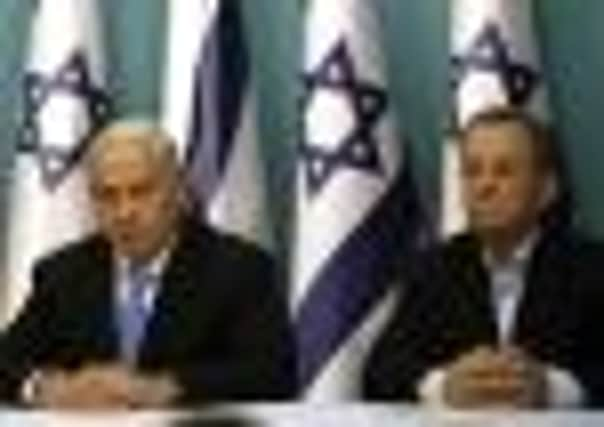Democracy fears as Arabs set to boycott Israeli poll


The feeling of alienation among the Arab minority was intensified yesterday after the Central Elections Committee – at the impetus of prime minister Benjamin Netanyahu’s Likud party – voted to ban the candidacy of legislator Hanin Zoabi from the Arab nationalist Balad party. She is widely reviled for her stridently anti-Zionist positions and for joining in 2010 with pro-Palestinian activists in an international flotilla that tried to break the naval blockade of the Gaza Strip.
In this crowded town in the Wadi Ara Arab heartland of northern Israel, there is a strong feeling that there is no point in voting. “People won’t vote because they know it’s for nothing. The Jews won’t give us a chance to have power,” said Mohammed Mahameed, a school maintenance man.
Advertisement
Hide AdAdvertisement
Hide AdHowever, there is great deal at stake for Arabs. In October, Mr Netanyahu combined his Likud party’s electoral list with that of ultra-nationalist Yisrael Beiteinu party leader Avigdor Lieberman, paving the way for the possible emergence of the most right-wing government in Israeli history.
Yusuf Khawish, a cigarette merchant, said: “People are in despair. Their psychological situation doesn’t encourage voting. Who votes? Only he who thinks he can benefit.”
It was not always like this. Voter turnout among Israel’s Arab minority – 20 per cent of the population – was 70 per cent during the contest that brought Yitzhak Rabin to power in 1992. After the election, he struck an alliance with Arab legislators, who gave him a blocking majority of 61 seats in the 120-seat parliament that prevented his being toppled by the right as he pursued the self-rule agreement with the Palestinians.
But the alliance between Arab politicians and the ruling Labour party unravelled during prime minister Ehud Barak’s tenure. In 2009, Arab turnout sank to an all-time low of 53 per cent. Polls taken recently by the Abraham Fund, a group promoting co-existence, and the Israel Democracy Institute, suggest it will tumble below 50 per cent this time.
The despair in places like Umm al-Fahm is economic as well as political. According to a recent study by the Sikuy organisation that promotes equality, Arab households are more than twice as likely to be below the poverty line than Jewish ones.
The malaise is not all of Israel’s making. According to the Abraham Fund survey, Arab potential voters wanted the three Arab-oriented parties in the Knesset to set aside their differences and run a united list emphasising education, poverty and employment. But they failed to do so.
Ofer Kenig, a researcher at the Israel Democracy Institute, says that “if Arab turnout drops below 50 per cent, it might serve as a tool for anti-Israel forces abroad to undermine the democratic element of Israel. They will argue Israel is not a real democracy, that it’s a flawed democracy and ethnic state.”